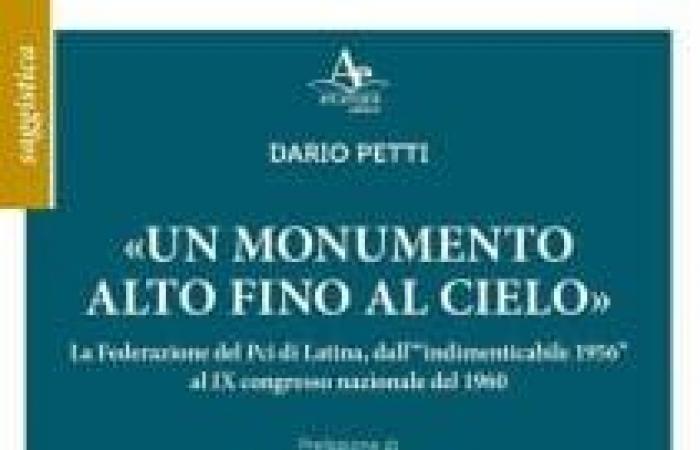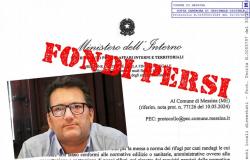The new book by historian Dario Petti retraces the events of the Communist Federation in the post-war period: the invasion of Hungary, de-Stalinization, the PCI congress of 1960. Presentation at the Teatro di Cori on 15 June
How did the left move in those territories of the Pontine area which had suffered under the fascist regime since 1934? Where did it have its roots? What difficulties, what hopes and what disappointments did the militants of the Communist Party encounter after the war? This page of history is told by Dario Petti who in the wake of the book The Italian Communist Party in the province of Latina 1921 – 1956 released in 2007, continues his reconstruction of the path of the PCI in the Pontine area. A territory, let us remember, where new cities and 3 thousand farms were built with the National Fighters Association. Here lived families of farmers from different regions who arrived mainly from Northern Italy in the hope of finding a better life, communities who in the post-war period were “often nostalgic for the twenty years of Mussolini who had made them protagonists of an epic” exalted by fascist propaganda. But even the city bureaucracy remained anchored to the past. This is the historical and social climate investigated by the new essay by Dario Petti which will be presented on 15 June in Cori (at the Luigi Pistilli theatre, 6pm) in the presence of the mayor Mauro De Lillis, the cultural delegate Michele Todini and the essayist Pietro Vitelli.
A monument high up to the sky. The Federation of the PCI of Latina, from the “unforgettable 1956” to the IX national congress of 1960, Atlantide Editore, (with a preface by Gianluca Fiocco) investigates the history of the Communist Federation of Latina and how the events of 1956, the invasion of Hungary, Khrushchev’s denunciations against Stalin, the VIII congress of the PCI were reflected in it and then the events of the years immediately following up to the IX congress of 1960. The intent is to understand how these facts affected the provincial organization or, as the author explains, if «there were abandonments, electoral failures, resistance towards the line of the “Italian road to socialism”” and how these were overcome in a Federation that Pietro Ingrao, member of the Federal Committee from ’53 to ’60, defined as suffering from “widespread sectarianism”.
The title of Petti’s book, which refers to a specific episode, already explains the widespread state of mind among the militants. A farmer from the Lepini mountains, secretary of the Prossedi section of the PCI, unable to participate in the meeting called by the leaders of the Pontine Federation in March 1956, sent a letter to the Federal Committee in which, expressing his opposition to the criticisms directed at Stalin, he writes that if anything we should build “a monument as high as the sky” for the things achieved as leader of the Soviet Union, expressing a sentiment that was very widespread and shared among communist militants.
From the Latin America of the 1950s with the Federation replacing secretary Severino Spaccatrosi in December 1955 after having led the Pontine Party for ten years, we move into that period which followed Khrushchev’s “bomb”, de-Stalinisation. In the Pontine microcosm the base of the party, made up mainly of farmers, is replaced by that of the factory worker, «without the cultural background of the former, without traditions of struggle, nor deep ties with the territories. These were – explains Dario Petti – often young immigrants from the south of Italy.”
Through a trail of facts, the events of ’57, ’58 up to the IX congress of the PCI are analysed. Petti’s book is a careful research of local history, carried out mainly between the State Archives of Latina and the Gramsci Foundation which highlights how “the line of the Italian road to socialism will be able to pass gradually thanks to the replacement of the ruling group” crossing that phase of renewal in which socialism was freed from its authoritarian characteristics to interpret the needs of the new working class. That is, the search for a better life, for feeling good, an essential synonym for those who chose the path of the left after the nightmare of the twenty years of fascism.
The author: Licia Pastore is a journalist and author of the book “Fernando Bassoli: first mayor of Latina”, Atlantide editore






